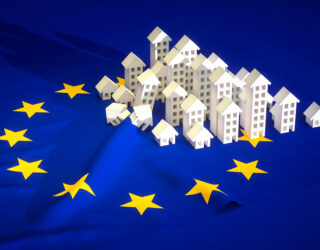In our last blog entry, we mentioned that the CJEU could clarify or refine its doctrine on professional secrecy in its upcoming ruling on case C-432/23, Ordre des Avocats du Barreau de Luxembourg. This anticipated judgment was issued on September 26, 2024.
The release of this new ruling merits our immediate attention.
- The preliminary question referred to the CJEU by a Luxembourg court stemmed from a case involving information requests from the Luxembourg tax authorities, which were in turn requested by the Spanish tax administration under the framework of information exchange regulated by Directive 2011/16, the Administrative Cooperation Directive (DAC). The information request and subsequent requirement aimed to obtain data or information from a law firm regarding advice provided in Luxembourg to a Spanish company in the context of certain share purchase transactions.
- In summary, the preliminary ruling raised three questions, as grouped by the CJEU from the five questions submitted: whether legal advice provided by a lawyer in commercial matters fell within the scope of protection afforded by Article 7 of the Charter of Fundamental Rights of the European Union (CFREU); whether the directive might be invalid insofar as it did not regulate professional secrecy in general terms; and finally, how the law of a Member State should be interpreted when it provides that professional secrecy does not protect communications between a lawyer and their client if the service was provided in tax matters, unless the disclosed information could have criminal consequences for the client.
- Firstly, the CJEU (Tenth Chamber) reiterates that lawyer-client privilege is protected by Article 7 of the Charter and Article 8 of the European Convention on Human Rights (ECHR); this privilege is a necessary consequence of the respect for private life enshrined in these provisions. This professional secrecy covers not only the activity of defending a litigant but also legal advice in any branch of law. Therefore, advice provided in commercial matters is protected by this professional secrecy or duty of confidentiality, against any authority and in any case.
Secondly, the judgment addresses the possible invalidity of DAC6, as it refers to national legal systems to determine, where appropriate, the limits of the information-gathering powers of each tax administration in the face of professional secrecy. The CJEU considers that the approach taken by the EU legislator does not lead to the invalidity of the directive, as it must be applied in light of Article 7 of the Charter and Article 8 of the ECHR. This normative block imposes on Member States the duty to recognize in their domestic legislation the professional secrecy of lawyers as a limit to the aforementioned public powers.
Consequently, thirdly, EU law opposes a national legal system that disregards this limit when legal advice is provided in tax matters. Moreover, in terms of Article 52 of the Charter, an information request that extends to the content of communications between a lawyer and their client affects the essential content of Article 7 of the Charter and must be considered contrary to that content without the need for additional analysis. It would be different if the request did not extend to data relating to the content of the advice provided, as the request would affect this fundamental right but would not reach its essential content; such an effect would be in accordance with Article 7 of the Charter if it were justified by reasons of general interest, such as the fight against tax fraud, and did not go beyond what is necessary to achieve this objective, thus respecting the principle of proportionality.
This last requirement was not met in the original wording of Directive 2011/16, when it was amended by Directive 2018/822. Requiring an intermediary to communicate to any other intermediary, even if not their client, that they were exempt from their reporting duty due to their professional secrecy, went beyond what was necessary to combat tax fraud, thus infringing the confidentiality duty of that lawyer intermediary and Article 7 of the Charter. This was the CJEU’s understanding in its judgment of December 8, 2022, case C-694/20.
However, the judgment of September 26 adds nothing on the issue raised by the judgment of July 29, 2024, case C-623/22. On the contrary, the CJEU treats professional secrecy as a consequence of due respect for private life, which only occurs in the case of lawyers, albeit (indeed) in relation to all legal advice services they provide and not only when acting in defense of a citizen in relation to a process.
Therefore, this doctrine continues to raise the doubts that we set out below.
Following the judgment of December 8, 2022, Directive 2011/16 was amended by Directive 2023/2226 of October 17, 2023 (DAC 8), whose preamble states, in paragraph 44, that, according to the aforementioned CJEU judgment, Directive 2011/16 should be amended so that “[t]hose lawyers acting as intermediaries, when exempt from the obligation to report information due to being subject to professional secrecy”, should not have to inform any other intermediary who is not their client about this circumstance. However, the new wording of paragraph 5 of Article 8 bis ter continues to speak of intermediaries and refers to national legal systems to define their professional secrecy.
The Spanish legislator had already amended the twenty-fourth additional provision of the General Tax Law by Law 13/2023 of May 24, to require this reporting obligation only with respect to those who are clients of intermediaries exempted by the duty of professional secrecy, without providing for the modification of this provision in the draft law transposing Directive 2023/2226. In other words, we are still, in short, talking about intermediaries, although the CJEU talks about lawyers.






